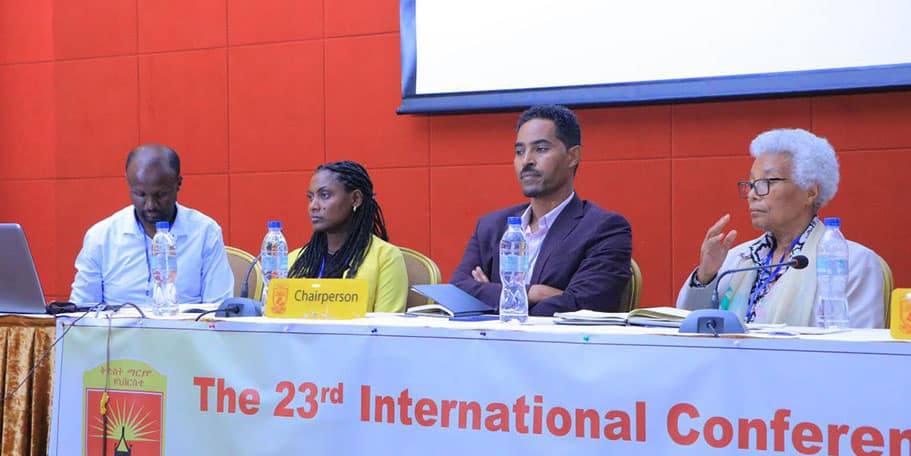
Officials at the Ministry of Education say they are introducing stringent measures to prevent academic dishonesty, including the submission of dissertations generated by Artificial Intelligence (AI).
Kora Tushune, a state minister of Education, elaborated on the efforts during the 23rd International Conference on Private Higher Education in Africa, organized by St. Mary’s University in Addis Ababa on May 29, 2025.
“To prevent fake dissertations and studies, including those generated using artificial intelligence, universities are applying anti plagiarism techniques to adopt various technologies and to work in a coordinated manner to address research-related challenges,” he said.
Kora noted that the number of published studies in Ethiopia has more than doubled in the last five years, with the majority produced by public higher education institutions.
He also stated that the government will take action against institutions who fail to pass the higher education exit exam with a minimum score of 75 percent.
– Advertisement –
“There are institutions that have taken action against themselves after this directive was issued. In particular, around 90 private educational institutions have been closed. Most of them voluntarily shut down after reviewing the directive,” said the State Minister.
Although no public universities have been closed, Kora confirmed that some have shown poor performance. The names of the private institutions that were shut down were not disclosed.
“Our role is not to go and shut down institutions, but rather to clarify their status and ensure that citizens seeking education have access to accurate information to make informed decisions,” he added.
Wondwosen Tamrat (PhD), president of St. Mary’s University, said that both public and private universities have been affected by the government’s measures to improve educational quality.
While the low number of university applicants has impacted all institutions, Wondwosen noted that private universities are more severely affected due to their lack of government financial support.
He stated that St. Mary’s University continues to admit the same number of students as in previous years. However, reduced student enrollment has led to the closure of many other institutions.
He acknowledged that the situation has improved somewhat due to a remedial program for students who failed to earn passing marks on university entrance exams.
“Maintaining the quality of education benefits all stakeholders, including private institutions,” said Wondwosen.
He also urged the government to support private higher education institutions, pointing out that the sector has produced over 100,000 graduates nationwide over the past 25 years and has played a key role in addressing the country’s demand for skilled professionals.
Private universities, he concluded, are expected to adopt new business models to remain competitive and sustainable in the evolving education sector.
St. Mary’s University conference in partnership with the Association of African Universities, the International Network for Higher Education in Africa, the University of KwaZulu-Natal, the Organization of Southern Cooperation (OSC), and the Ministry of Education.
.
.
.
#Ministry #Cracks #Academic #Dishonesty #Higher #Education
Source link











